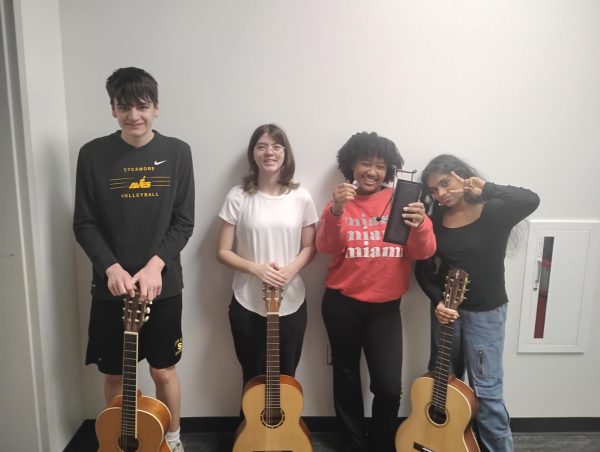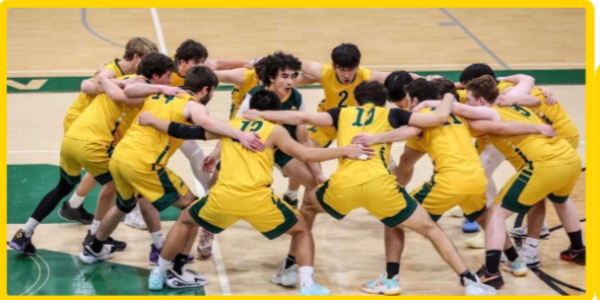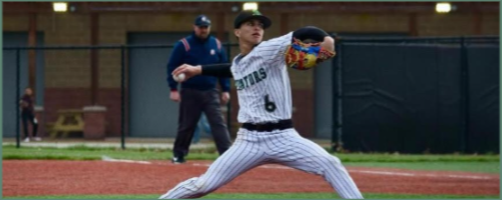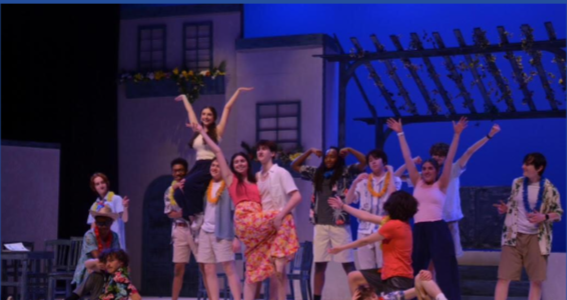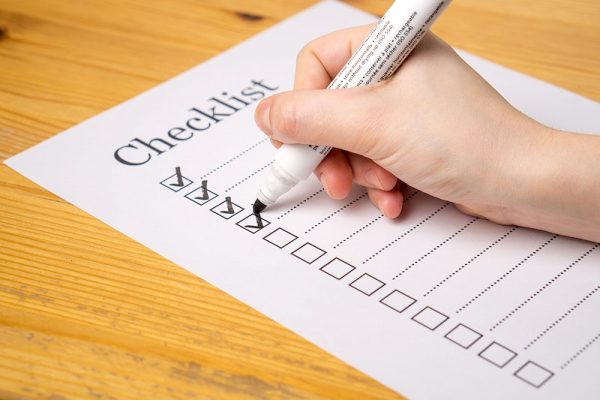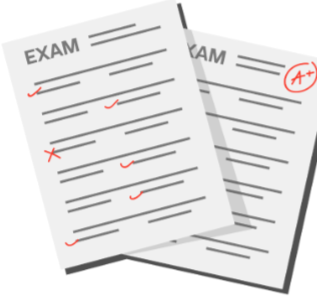Students take stage
SPEAK UP. The final debate was hosted sixth bell in the Little Theater and was watched by most sophomores and other students. English teachers and previous debate winners judged the debate. “It’s definitely helped my persuasive writing, and a lot of my group members are now better public speakers as well because of it,” Zhang said.
In-class debates had taken place. Votes cast, each class had chosen five students. These groups were in a rush to prepare with their classes before debates on April 11 and 13. The day was split between competition bells, plan bells, and lastly class bells.
The finalist debaters were Mrs. Melissa Sullivan’s bells three and four. Her third bell won the entire sophomore debates, with the big prize being bragging rights. There is also a gift card for each of the five students.
The winning side was made up of Christine Zou, Grant Bruner, Madeline Weiss, and Andrew Han, who gave speeches, and Luis Predea Amaya as the researcher.
Teams were matched up on brackets and had two debates the first day if they moved on through the elimination rounds. Groups were named by the teacher and bell, and they ranged from standards to accelerated.
“I was really looking forward to what each team had to offer because not everyone thinks in the same way and has the same evidence. I was anticipating a lot of good arguments that I hadn’t heard before,” said Carolyn Zhang, 10, debate finalist.
The topic this year for debates was the elimination of the traditional letter based system. Affirmative speakers had to create a new system, and the negative would had to criticize it while talking up the traditional letter system.
“The more we [the debate group] worked together, the more we clicked, and by the day before finals when we were doing final edits, I felt like I had been working with my friends for much longer than two weeks,” Zhang said.
Classes collaborated to choose the best affirmative plan and create the hardest-to-beat speeches. Students met in and out of school to work on making sure the speeches flow. They had to craft constructive and be prepared for rebuttal speeches and cross examination.
“Being in the finals and facing off against close friends was a one-of-a-kind experience because we were friends but also rivals at the same time! Even though we lost in the finals, I believe that we really did the best we could, and I couldn’t be prouder of my amazing teammates,” Zhang said.
Your donation will support the student journalists of Sycamore High School. Your contribution will allow us to purchase equipment and cover our annual website hosting costs.



